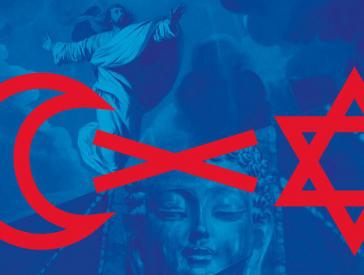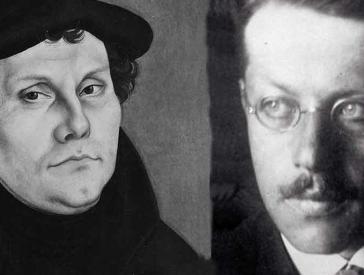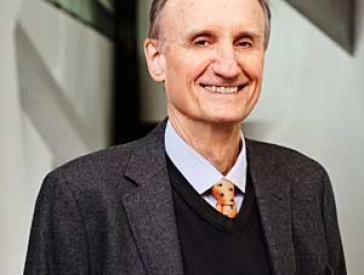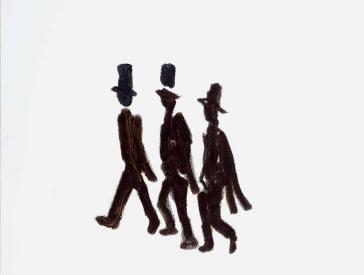Religion
Lecture Series The Others’ Faith
On the Path to Enlightenment: Judaism, Islam, and Buddhism
Whereas Jews rarely came in contact with the teachings of Buddha before the nineteenth century, the spread of Islam in central and southeast Asia sparked an intensive exchange between Muslims and Buddhists. What shape did these relationships take?
Today, the popularity of Buddhism is growing in the West. Its followers include a group known as JuBus: predominantly American Jews who have adopted Buddhist practices. What explains that interest? And how do Judaism and Islam today approach a tradition of thinking that recognizes deities but not one all-powerful and immortal God?
A discussion with Jerome Gellman (Ben-Gurion University) and Johan Elverskog (Southern Methodist University), video recording of the event on 24 Sep 2020, in English
Read more
Tying the Knot versus Bonds with God: Jews and Muslims in Interfaith Marriages
Does interfaith marital bliss require religious relativism?
Love goes beyond religious and cultural barriers, or at least that is what many believe. The growing number of interfaith marriages in Europe and the United States does seem to confirm this. But in day-to-day life, couples who practice different faiths confront a variety of challenges.
How do Jews and Muslims handle this? How can someone strike a balance between their own religious beliefs and their partner’s – and pass on those beliefs to children? And finally, how do the religious authorities react to interdenominational marriages?
With Madeleine Dreyfus (cultural anthropologist and psychoanalyst) and Imen Gallala-Arndt (Max Planck Institute for Social Anthropology), video recording of the event on 18 Jun 2020, in German
Read more
Non-Transcendental Morality: Judaism, Islam, and Atheism.
Can mindsets critical of religion be constructive for a Jewish and Islamic theology that speaks to our times?
Skepticism, non-belief, and doubt have accompanied religions since their beginnings. As a result of advancing secularization, however, atheistic and agnostic convictions have become widespread in the Western world to an unprecedented level. How do Judaism and Islam respond to this?
As monotheistic religions, they both see the negation of God as a rejection of moral values. But do moral principles necessarily require recourse to transcendence? And how do Judaism and Islam meet the claim of rationality and reason formulated by the atheists?
With Jacques Berlinerblau (Georgetown University) and Ufuk Topkara (Johns Hopkins University), video recording of the event on 20 Apr 2020, in German and English
Read more
What do you think about Jesus? Judaism, Islam, and Christianity
Jewish and Muslim perspectives on Christianity – Many Christian beliefs and religious practices are baffling to Jews and Muslims, from the Holy Trinity and the veneration of saints to the role of Jesus as the Son of God. By contrast, the other two traditions applaud Christianity’s shared beliefs in divine creation and the immortality of the soul as well as the observance of moral principles.
Where do Jewish and Muslim perspectives on Christianity overlap? Where do they diverge? And how is the diversity of Christian denominations addressed in theological debates?
With Israel Yuval (Hebrew University in Jerusalem) and Maha El Kaisy-Friemuth (Friedrich Alexander University of Erlangen-Nuremberg), video recording of the event on 18 Feb 2020, in German and English
Read more
Mono or Poly? Judaism, Islam, and Hinduism
How do today’s Jews and Muslims view Hinduism, which recognizes multiple deities?
Since Antiquity, Judaism has been preoccupied with setting itself apart from polytheistic religions and “idolatry.” Islam, too, has had numerous experiences with non-monotheistic religions, dating back to its emergence in the early seventh century BCE, and particularly during its expansion in Asia.
How do today’s Jews and Muslims view Hinduism, which recognizes multiple deities? As we will see, perhaps these historical perspectives are useful for a contemporary understanding of polytheistic religions, or perhaps such perspectives impede a nuanced exploration.
With Rabbi Alon Goshen-Gottstein (Elijah Interfaith Institute) and Reza Shah-Kazemi (Institute of Ismaili Studies in London), video recording of the event on 4 Feb 2020, in English
Read more
Judaism and Islam – The History of Theological Relations
Judaism is generally regarded as the first monotheistic religion. The advent of Islam, however, brought a strictly monotheistic “competitor” to Judaism. How did Jewish scholars view this new religion? Both the Koran and early Islamic writings testify to numerous encounters between the Prophet Mohammed and Jews.
What does the Muslim Holy Scripture and early Muslim tradition reveal about how they perceived Jews and their religious ideas and practices?
With Lukas Mühlethaler (Free University Berlin) and Imam Abdullah Antepli (Duke University, USA), video recording of the event on 21 Nov 2019, in German and English
Read more










